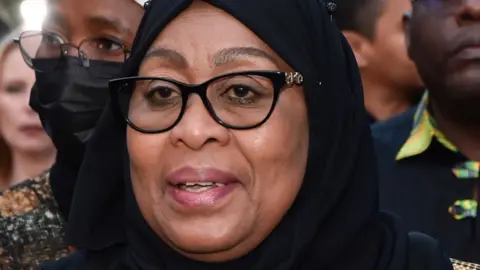Tanzania is intensifying efforts to arrest senior opposition leaders it holds responsible for violent protests following last week’s presidential and parliamentary elections. Police have identified 10 key individuals wanted in connection with the unrest, which erupted after opposition figures were excluded from the ballot.
Among those sought are CHADEMA’s secretary general John Mnyika, his deputy Amaan Golugwa, and the party’s head of communications, Brenda Rupia. The government alleges these leaders played a central role in planning and executing the violence. A police spokesperson said, “The police force, in collaboration with other defence and security agencies, is continuing a serious manhunt to find all who planned, coordinated and executed this evil act.”
The crackdown follows charges of treason against 145 people, highlighting the government’s zero-tolerance approach to dissent. CHADEMA’s leader, Tundu Lissu, was previously charged with treason in April. His exclusion from the election, along with another major opposition contender, has been cited as a major trigger for the protests.
Incumbent President Samia Suluhu Hassan was declared the winner with nearly 98% of the vote and sworn in on Monday. However, the African Union observers have questioned the credibility of the election, reporting instances of ballot box stuffing. The government has dismissed these criticisms, insisting the process was fair.
The protests, which began on October 29, spread across major cities including Dar es Salaam, Arusha, Mwanza, and Mbeya. Police reported widespread destruction of private and public property, including bank teller machines and government offices, and noted that people were injured during the clashes, though no official death toll has been provided. Opposition and human rights groups, however, claim that security forces may have killed more than 1,000 people a figure the government calls exaggerated.
As Tanzania faces a tense post-election environment, authorities are under pressure to restore order while addressing claims of election irregularities. For now, the manhunt for opposition leaders continues, signaling a crackdown that could shape the country’s political landscape in the months ahead.

